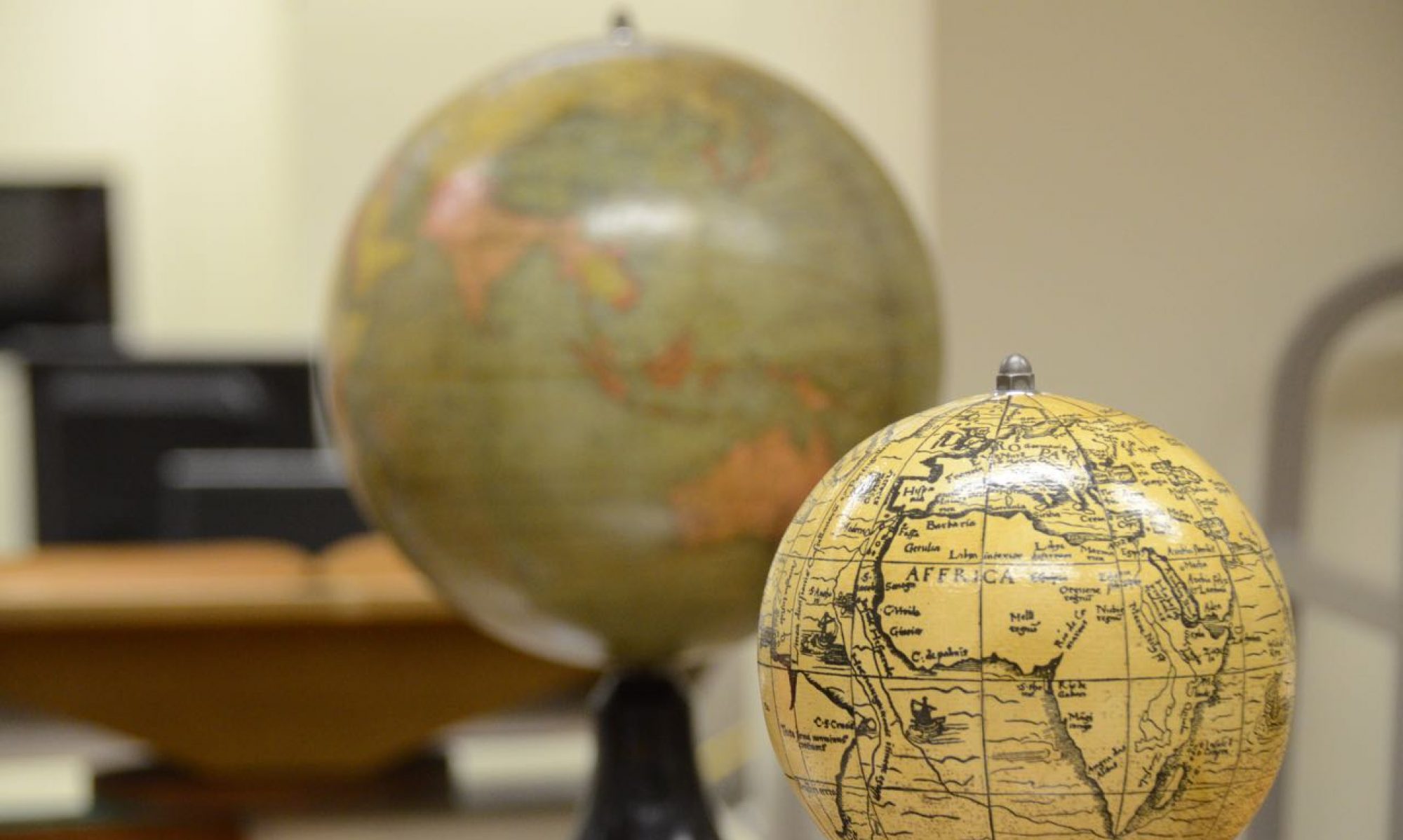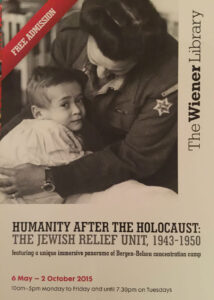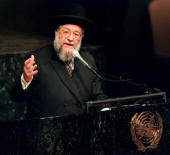I am pleased to advise that I have been selected to give a presentation at the 35th IAJGS International Jewish Genealogical Conference in Jerusalem in July.
The title of my talk is:
“A TRAGIC ROMANCE AND ITS CONSEQUENCES:
FROM ONE PHOTO TO JOURNEYS OF RESEARCH AND DISCOVERY!”
The narrative about Moshe and Paula starts in Orla, Poland and ends suddenly in South Africa.
However, the research starts 80 years later in Australia and takes me to Poland, Belarus, Israel, the UK, Germany, South Africa, the US and Canada.
More to follow in upcoming blogs.

Where is Orla:
https://goo.gl/maps/bOCTK
Facebook page just started for Moshe and Paula:
https://www.facebook.com/mosheandpaula?ref=hl

ENJOY A RARE GENEALOGICAL FEAST OF KNOWLEDGE when top experts from around the globe gather in Jerusalem. Nearly 200 guest lecturers will share their expertise and research on the world’s main Jewish communities including the US, Eastern and Western Europe, Israel, and Russia, PLUS they’ll take you to such exotic Jewish genealogical destinations as Tuscany, Casablanca, Sweden, Spain, Ethiopia, India, South Africa, Belgium, Latvia, Moldova, and many, many more. Their lectures will encompass a host of topics, from technological developments in genealogical research to perspectives on the Holocaust to the science of onomastics (the study of names), and a wealth of other topics including DNA.
DON’T MISS THE PRE-CONFERENCE SHABBATON on the Friday-Saturday, July 3 -4 weekend preceding the Conference, followed by an
UNFORGETTABLE “EXPLORATION SUNDAY” on July 5. Full and fascinating details are on the conference website
www.iajgs2015.org.
Conference discussion group and more. Sign up for our ongoing Conference discussion group, where announcements and special offers are being posted. Also, follow us on Facebook and Twitter. Just click on the links at
www.iajgs2015.org to sign up and stay informed.ief Rabbi Lau
Michael Goldstein, Chairman
chairman@iajgs2015.org
35 th IAJGS International Conference on Jewish Genealogy
| Conference Keynote Speaker Announcement |
|
From: Michael Goldstein, Chairman IAJGS 2015 (chairman iajgs2015.org) iajgs2015.org) |
| Date: Sun, 29 Mar 2015 09:17:21 -0700 (PDT) |
Rabbi Israel Meir Lau, former Chief Rabbi of Israel and Chairman of the Yad Vashem Council, will deliver the keynote address at the International Association of Jewish Genealogical Societies (IAJGS) 35th International Conference on Jewish Genealogy to be held in Jerusalem from July 6-10, 2015. Rabbi Lau will speak on the topic, ?Connecting to Jewish Heritage through Jewish Genealogy.? Israel Meir Lau, who was one of the youngest survivors of the Holocaust, was liberated from the Buchenwald concentration camp at the age of eight in 1945. Throughout his life, he has continually championed the preservation of the memory of the six million victims of the Holocaust, gaining prominence as an outstanding orator and activist. Rabbi Lau has participated in every March of the Living commemoration held in Poland, bringing together thousands of students and adults from around the world. He brings an important message to focus on the individuals who comprise the millions murdered. Israel Meir Lau was born in the Polish town of Piotrków Trybunalski, and is the 38th generation in an unbroken family chain of rabbis. On Independence Day 2005 Rabbi Lau received the Israel Prize generally regarded as the State of Israel?s highest honor, for lifetime achievement and special contributions to society and the State. In 2011 he was awarded “Legion of Honor” (France?s highest accolade) by French President Nicolas Sarkozy. In announcing Rabbi Lau as the keynote speaker, Conference Chairman Michael Goldstein put forth that the message that Rabbi Lau brings to us at the conference and in all his related talks a message that reinforces how vital our research is so that we learn of those members of our family who were displaced and murdered and how important our research is in bringing together families which were torn apart.
Yisrael Meir Lau
From Wikipedia, the free encyclopedia
Yisrael (Israel) Meir Lau (Hebrew: ישראל מאיר לאו; born 1 June 1937 in Piotrków Trybunalski, Poland) is an Israeli and the Chief Rabbi of Tel Aviv, Israel, and Chairman of Yad Vashem. He previously served as the Ashkenazi Chief Rabbi of Israel from 1993 to 2003.
Yisrael Meir Lau (8 years old) in the arms of Elazar Schiff, Buchenwald survivors at their arrival at Haifa on 15 July 1945.
Lau was born on 1 June 1937, in the Polish town of Piotrków Trybunalski. His father, Rabbi Moshe Chaim Lau (Polish: Mojżesz Chaim Lau), was the last Chief Rabbi of the town; he died in the Treblinka extermination camp. Yisrael Meir is the 38th generation in an unbroken family chain of rabbis.[1]
Lau was freed from the Buchenwald concentration camp in 1945, after Rabbi Herschel Schacter detected him hiding under a heap of corpses when the camp was liberated.[2] Lau has credited a teen prisoner with protecting him in the camp (later determined by historian Kenneth Waltzer to be Fyodor Michajlitschenko).[3] His entire family was murdered, with the exception of his older brother, Naphtali Lau-Lavie, his half brother, Yehoshua Lau-Hager, and his uncle already living in Mandate Palestine.
Lau immigrated to Mandate Palestine with his brother Naphtali in July 1945, where he studied in the famous yeshiva Kol Torahunder Rabbi Shlomo Zalman Auerbach[4] as well as in Ponevezh and Knesses Chizkiyahu. He was ordained as a rabbi in 1961. He married the daughter of Rabbi Yitzchok Yedidya Frankel, the Rabbi of South Tel Aviv.[1] He served as Chief Rabbi in Netanya(1978–1988), and at that time developed his reputation as a popular orator.
Lau is the father of three sons and five daughters. His eldest son, Moshe Chaim, took his place as Rabbi in Netanya in 1989; his son David became the Chief Rabbi of Modi’in, and later Ashkenazi Chief Rabbi of Israel; and his youngest, Tzvi Yehuda, is the Rabbi of North Tel Aviv.[1]Lau is the uncle of Rabbi Binyamin (Benny) Lau, an educator and activist in the Religious Zionist movement, and Amichai Lau-Lavie, the founder and artistic director of the Jewish ritual theater company Storahtelling.
In 2008, Lau was appointed Chairman of Yad Vashem, succeeding Tommy Lapid.
Rabbinical career
Lau was ordained as a rabbi in 1961. His first rabbinic position was at the Ohr Torah synagogue in North Tel Aviv. In 1965 he was appointed as rabbi of the Tiferet Tzvi Synagogue in Tel Aviv, a position he held until 1971 when he was appointed rabbi of North Tel Aviv.
In 1978 Lau was appointed as chief rabbi of the city of Netanya. In 1983 Lau was appointed to serve on the Mo’etzet of the Israeli Chief Rabbinate. In 1988, after the death of his father-in-law, Lau was appointed to serve as chief rabbi of Tel Aviv, a position he held until 1993. When Lau met the Rebbe, Rabbi Menachem M. Schneerson in 1992, the Rebbe told Lau to finish his work in Tel Aviv, as he would soon be chosen to become the Chief Rabbi of Israel.[5] In 1993, Lau was elected Chief Rabbi of Israel.
On 9 June 2005, Lau was reinstalled as Chief Rabbi of Tel Aviv after serving in this position from 1985 until 1993, when he was appointed Ashkenazi Chief Rabbi of Israel, a position which he held until 2003.
Lau has often been characterized as the “consensus rabbi”, and has close ties to both Haredi and Modern Orthodox Judaism, particularly in regard to his politics, which have been characterized as moderate Zionist.[6] One report described him as “too Zionist to be considered Haredi.”
He is respected internationally by Jews and non-Jews alike, and is one of the few figures in the Haredi world who has managed to gain the trust and admiration of both the Sephardic and Ashkenazic population.[7][8] Lau has received some negative attention for his stances and remarks on non-Orthodox denominations of Judaism. When Lau was awarded the Israel Prize in May 2005, there were protests from the Masorti and Reformmovements in Israel. Non-Orthodox leaders noted that it was ironic that Lau was being honored for “bridging rifts in Israeli society”. Lau’s spokespeople said that the fact that he had been approved by the (presumably heterogeneous) Prize Committee spoke for itself.3
Interfaith work
In 1993, Rav Lau had an hour-long meeting with John Paul II at the Pope’s summer residence of Castel Gandolfo near Rome sought to offer the Vatican’s moral support to the latest peace moves in the Middle East. The visit was the first between a Pope and one of Israel’s chief rabbis since the founding of the Jewish state in 1948.[9] In 2009, he was critical of a speech given by Pope Benedict XVI during a visit to Israel.[10] He later applauded a new papal statement which gave more emphasis to the suffering of Jews during the Holocaust.[11]
Presidential candidacy
In the spring of 2006, the Israeli media reported that Lau was being considered for presidency of the State of Israel. Some critics in the Israeli media wrote that Lau was more focused on maintaining his image as a progressive than in implementing such positions in the rabbinate’s policies, specifically major issues such as agunot, civil marriage, the status of Shabbat, and other divisive topics that continue to be relevant to many in the secular community vis-a-vis the Chief Rabbinate, which under Lau’s leadership usually sided with the Orthodox perspective.
Another criticism was that a rabbi as president could further blur the line between religion and the state, and push Israel closer to becoming a theocracy, both in fact and public perception. Israel’s gay community also opposed Lau’s possible candidacy due to his criticism of the Gay Pride parade in Tel Aviv and views on same sex couples. The Reform and Conservative movements in Israel also regarded Lau’s candidacy as “unsuitable.” A Reform activist accused Lau of being more concerned with fulfilling Judaism’s ritual requirements than focusing on pressing ethical questions such as discrimination in Israel or genocide in Darfur.
Awards and recognition
In 2005, Lau was awarded the Israel Prize for his lifetime achievements and special contribution to society and the State of Israel.[12]
On 14 April 2011, he was awarded the Legion of Honor (France’s highest accolade) by French President Nicolas Sarkozy, in recognition of his efforts to promote interfaith dialogue.[13]
Views
“Let’s sit down together and let’s live together. We always knew how to die together. The time has come for us to know also how to live together, said Lau, calling for co-operation and dialogue between all Jews (Jerusalem, 14 February 1999).
At the 2006 commemoration of the massacre of Babi Yar, Lau pointed out that if the world had reacted, perhaps the Holocaust might never have happened. Implying that Hitlerwas emboldened by this impunity, Lau speculated:
“Maybe, say, this Babi Yar was also a test for Hitler. If on 29 September and 30 September 1941 Babi Yar may happen and the world did not react seriously, dramatically, abnormally, maybe this was a good test for him. So a few weeks later in January 1942, near Berlin in Wannsee, a convention can be held with a decision, a final solution to the Jewish problem. Maybe if the very action had been a serious one, a dramatic one, in September 1941 here in Ukraine, the Wannsee Conference would have come to a different end, maybe“.[14]
Published works
Like this:
Like Loading...




























































